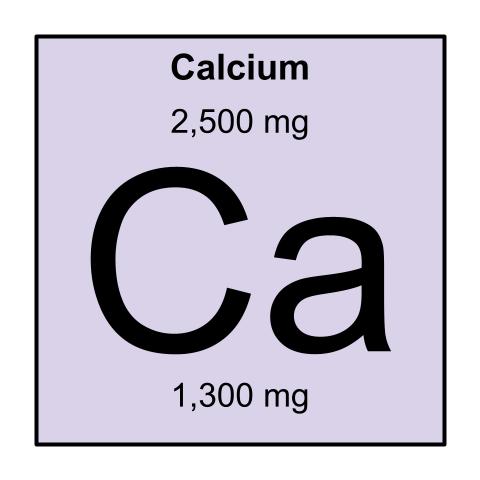Calcium is the most abundant mineral in the body. It is a mineral necessary to build and maintain strong bones and teeth and is also important for blood clotting, blood vessel and muscle contraction, enzyme and hormone secretion and the central nervous system functioning. Sources include dairy, fish with bones, soy and soy products, almonds, figs, leafy green vegetables, and beans.
Quick Facts
-Most abundant mineral in the body [129]
-Calcium is a mineral necessary to build and maintain strong bones and teeth.
-Important for blood clotting, blood vessel and muscle contraction, enzyme and hormone secretion and the central nervous system functioning. [68]
RDI
Males 19 – 30 yrs: 1,300 mg
Females 19 – 30 yrs: 1,300 mg
[128]
Deficiency
-Muscle aches cramps and spasms are early signs. Other symptoms include extreme fatigue, dry itchy skin including eczema and psoriasis, dry, broken and brittle nails, hair falling out in round patches, osteopenia and osteoporosis weakening bones, painful premenstrual syndrome, and dental problems [187]
Toxicity
-Upper limit 2,500 mg
-Can be caused by high Vitamin D consumption increasing calcium absorption
-When excessive calcium accumulates in the body it is called hypercalcemia and symptoms include excessive thirst and frequent urination, stomach pain and digestive problems, bone pain and muscle weakness, confusion lethargy and fatigue, anxiety and depression, and high blood pressure and abnormal heart rhythms [188]
Sources
Dairy, fish with bones, soy and soy products, almonds, figs, leafy green vegetables, beans [68]


